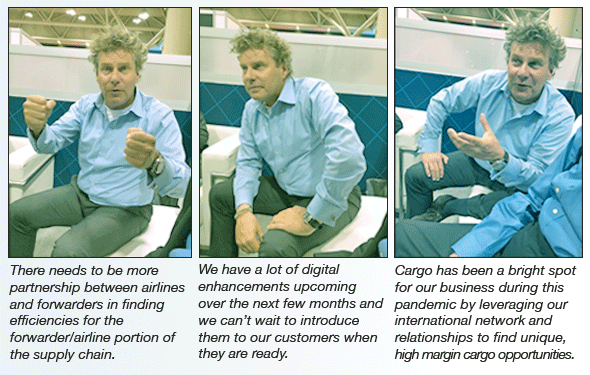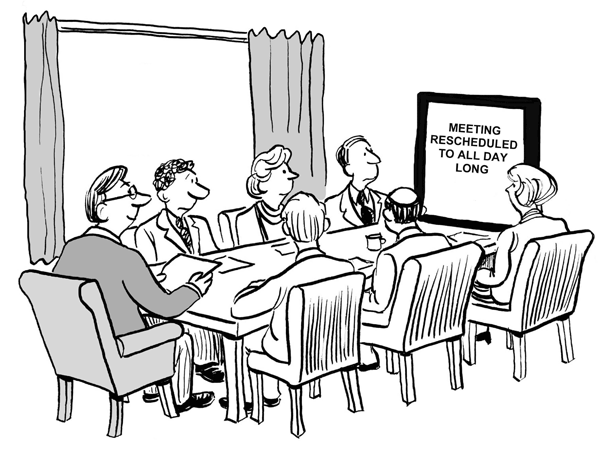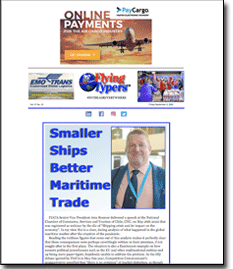 |
The big
Ferris Wheel branded London Eye that dominates the south bank of River
Thames Borough of Lambeth skyline these days, offering a circular,
high and a better view of London night and day is an exciting eyewitness
back to normal after the saddened atmosphere of that long emotional goodbye
to the beloved Queen during the past weeks.
All of a sudden it's back to business, as
a hopeful IATA World Cargo Symposium takes centerstage all this week.
Here is a chance for us air cargo commoners
to meet and greet the air cargo leadership Royalty, as they cameo appear
from their mandated annual IATA Cargo Membership meetings for a break,
or to queue up in line for some refreshments.
Hope if you ask, “what did you discuss?”
the question will not be met with the response I once heard one airline
cargo chieftain give:
'Why am I here? First thing that guy in
the meeting asked us, is does anybody have any good ideas to share? I’m
trying to run an airline and looking for answers and these guys are looking
for good ideas, Sheeesh!'
The Winner And Still Champion
From the downbeat of the thankfully now
fading global COVID pandemic, as we review the past couple of years and
the performance of all the top cargo bosses at the airlines, many of whom
have packed it in or changed jobs during the crises, Jan Krems, President
of United Cargo knew exactly what to do with his airline and he did it
better than anybody else.
The way Jan structured his cargo product
and offered it to the world not only became the template for how to cargo
airline during the worst global pandemic in the past 100 years, but also
can be recalled as perhaps the greatest save in the history of commercial
flight.
Face-to-face, Jan comes across as a very
broad thinker and a brilliant air cargo mind. But he also seems a very
approachable guy who knows how to both motivate people and thinking, and
have some fun as well.
All of this still probably makes Jan an
unlikely person to have seized the day and eventually be the person to
pick up the United flag at a time of crises and save the airline.
Born in the Netherlands, Jan worked his
way into the air cargo industry starting at the bottom at KLM, and rising
up the ladder to the point where just prior to arrival in the Willis Center
Chicago, home of United Airlines, he headed up the fortunes of Air France-KLM
Cargo USA, a $400 million plus dollar business.
“Cargo for me is very sexy,”
Jan told me right after he got the job.
“I worked 27 years at KLM Cargo and
it’s amazing but as fast as things change all around us, some basic
truths about air cargo have not budged at all since the beginnings of
the industry in the Post World War II modern era.
“You simply cannot mail it in.
“My first question speaking to customers
is always: 'How is our quality doing?'
“While quality is our top priority,
added value marks the road ahead for United Cargo holding great potential
and promise for our offering. Our key essential remains our management
of the processes up and down the line.
“We are developing and expanding capabilities
in customer service that will deliver even more transparency to our service
partners and ourselves as well moving forward,” Jan Krems said.
No question that Jan Krems stands tall amongst
the handful of top air cargo leaders in the world.
But we are happy to report that it is love
of what he does that drives this guy to taking this opportunity that he
describes as his ‘best and last job in air cargo’
to new heights.
“We have become an agile company,”
Jan declares.
“When the pandemic started, we were
the first U.S. commercial airline to start freight-only flights. To date,
we’ve flown more than 15,000 freight-only flights.
“When we knew the COVID vaccine was
going to be transported all over the world, we started planning months
in advance and received permission to fly with large amounts of dry ice.
“We’ve been working with governments,
pharmaceutical companies, freight forwarders, and our customers to change
our business model and work for the future.
“As passengers began flying again,
we had to revert back to traditional models, but still keep an eye out
for the future and how to deliver for our customers.”
Now we are entering the era of Ocean to
Air.
Here are Jan’s thoughts:
“Ocean carriers have traditionally
worked more directly with customers to move goods over one phase of the
supply chain journey.
“The capital investment they make
for their ships is high, but they can spread their costs over a huge amount
of cargo.
“The purchase of aircraft, as well
as freight forwarders is facilitating a shift in their business model
that enables them to offer end-to-end solutions with a broader range of
services, but this shift is still tied very directly to their core business–moving
goods through the global supply chain.
“United Cargo is a part of a larger
entity and moving goods is not the core business for that entity.
“Carrying passengers is the core
business for United Airlines and moving goods is a niche business within
the core business.
“Moving goods on passenger aircraft
provides advantages over air freighters because passenger flights take
off every day regardless of whether there is freight or not and we offer
service to a much broader network of origins and destinations than can
be offered by freighter carriers.
“We are a niche part of the supply
chain that offers dependability and speed for the goods that are time
critical.
“Interestingly enough, when COVID
impacted passenger flying, we at United Cargo were able to prove that
regardless of whether there were passengers or not, we could still take
off with freight.
“A passenger airline has high fixed
costs, and we had a choice at that time: park our assets and hope the
lockdowns passed quickly or redeploy our aircraft to fly freight and defray
some of the fixed costs.
“That meant that we had to cover the
operating costs and we were fortunate that demand was strong while capacity
was limited.
“Rates rose and we were able to cover
those operational costs. We had the added bonus of keeping our widebody
aircraft and our pilots flying.
“We worked closely with the passenger
side to begin adding passengers back on what, at that time were cargo
routes and the end result was that United Airlines was able to recover
faster than any other passenger carrier.
“It was a great success and has strengthened
the cooperation between Cargo and Passenger.
 |
“There are lanes today where we even
look at whether a full passenger load or an extra PMC in the belly is
the better decision for the airline overall.
“That would have been very challenging,
had we not gone through what we went through in the early days of COVID,”
Jan said, adding:
“Passenger airlines that carry large
amounts of cargo as we do, are a niche part of the global logistics supply
chain.
“That does not change with ocean carriers
purchasing aircraft. We each have our own core business and we can coexist,
and all be successful.
“Cargo has been a bright spot for
our business during this pandemic, as we’ve leveraged our international
network and relationships to find unique, high margin cargo opportunities.
“As passenger demand continues to
improve, cargo revenue becomes a smaller portion of our business as there
is less room in the belly of the aircraft.
“We expect to contribute to the enterprise
above 2019 levels.
“While an economic slowdown may be
coming, we expect our passenger business to moderate the broader slowdown.
“One of the things we are most excited
about are our planned enhanced digital offerings.
“We will soon allow for customers
to book shipments online.
“We are also looking at new pricing
model to give customers real-time pricing to book their shipments with
the click of a mouse.
“We have a lot of digital enhancements
upcoming over the next few months and we can’t wait to introduce
them to our customers when they are ready.
“There needs to be more partnership
between airlines and forwarders in finding efficiencies for the forwarder/airline
portion of the supply chain.
“Focus today seems to be on optimizing
individual roles of the process, cutting cost/rates or moving work from
one party to the other (screening, buildup, storage, special handling,
etc).
“Examples of where we could partner
more are expanded use of the website for bookings and tracking, which
is well documented and a current hot topic, but could also be expanded
into operational aspects.
“Also, the scheduling of dock doors
for tender and recovery of freight to minimize truck queuing/wait times
and ULD tracking for empty pickup and return—have great opportunities
for improvement.”
Geoffrey
|







